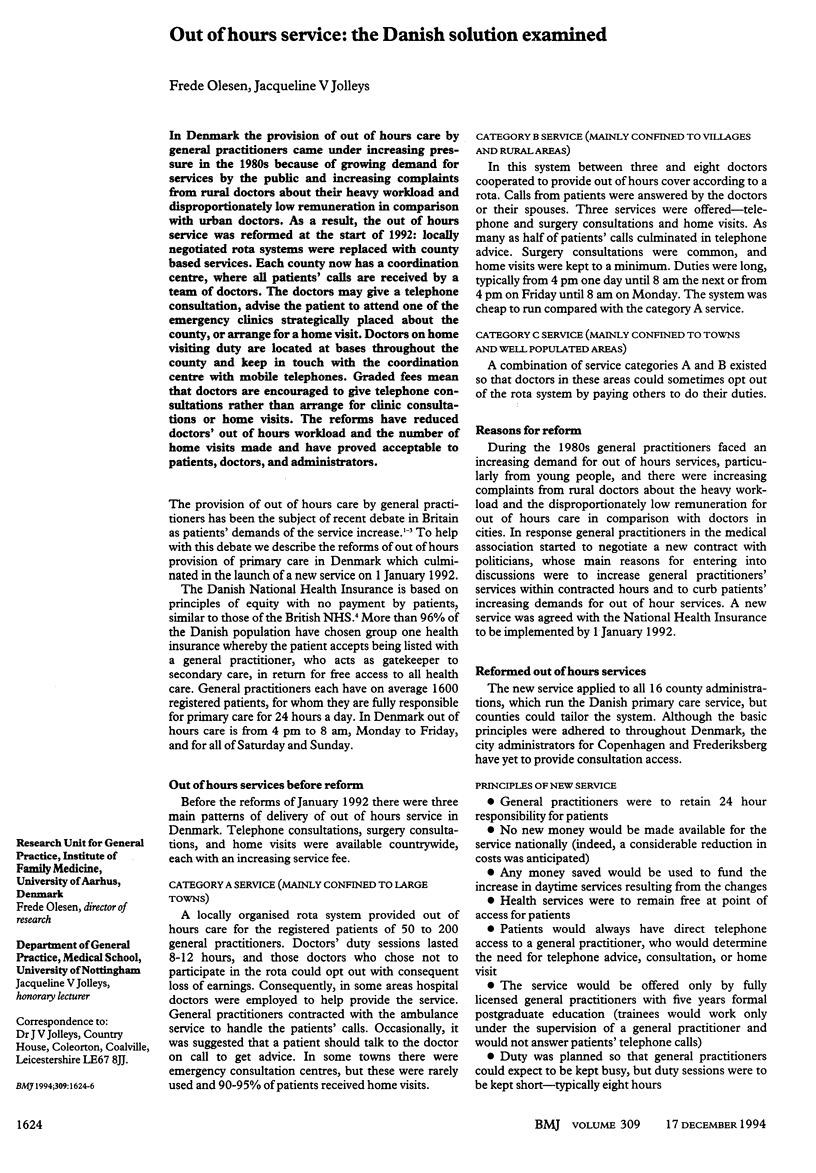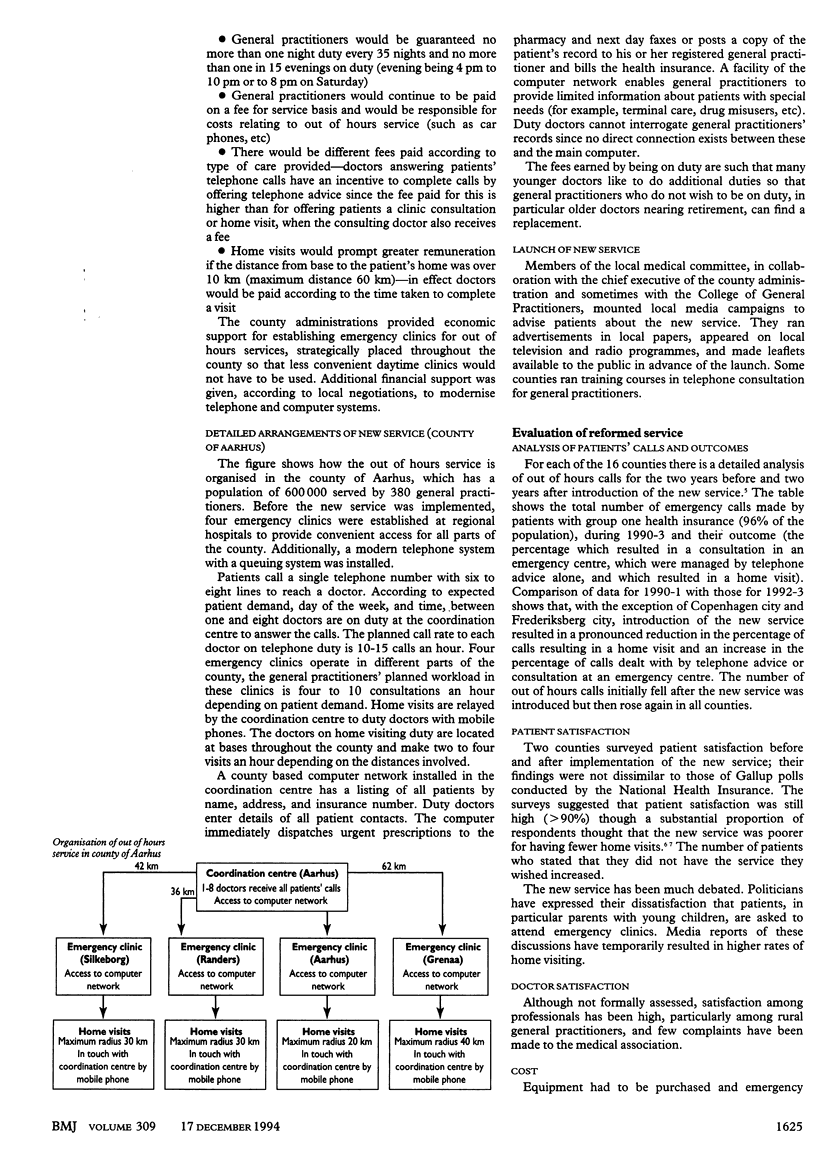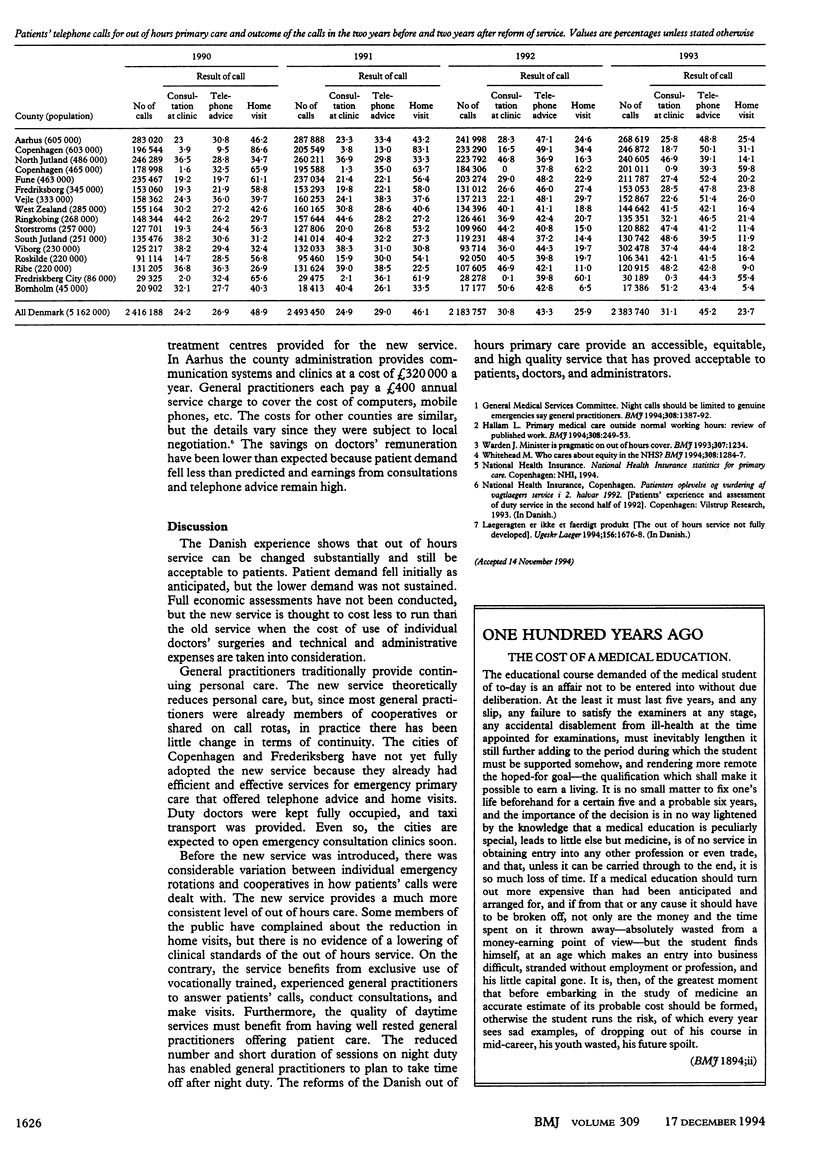Abstract
In Denmark the provision of out of hours care by general practitioners came under increasing pressure in the 1980s because of growing demand for services by the public and increasing complaints from rural doctors about their heavy workload and disproportionately low remuneration in comparison with urban doctors. As a result, the out of hours service was reformed at the start of 1992: locally negotiated rota systems were replaced with county based services. Each county now has a coordination centre, where all patients' calls are received by a team of doctors. The doctors may give a telephone consultation, advise the patient to attend one of the emergency clinics strategically placed about the county, or arrange for a home visit. Doctors on home visiting duty are located at bases throughout the county and keep in touch with the coordination centre with mobile telephones. Graded fees mean that doctors are encouraged to give telephone consultations rather than arrange for clinic consultations or home visits. The reforms have reduced doctors' out of hours workload and the number of home visits made and have proved acceptable to patients, doctors, and administrators.
Full text
PDF


Selected References
These references are in PubMed. This may not be the complete list of references from this article.
- Hallam L. Primary medical care outside normal working hours: review of published work. BMJ. 1994 Jan 22;308(6923):249–253. doi: 10.1136/bmj.308.6923.249. [DOI] [PMC free article] [PubMed] [Google Scholar]
- Whitehead M. Who cares about equity in the NHS? BMJ. 1994 May 14;308(6939):1284–1287. doi: 10.1136/bmj.308.6939.1284. [DOI] [PMC free article] [PubMed] [Google Scholar]


